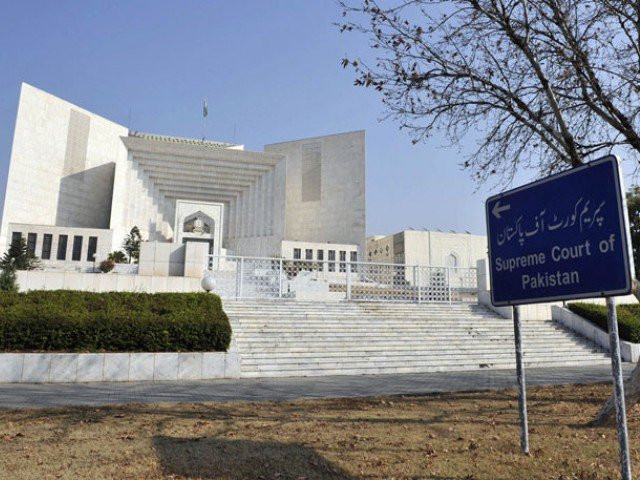Justice of peace: Top court reserves ruling on powers to record FIRs
Counsel claims lower court judges’ authority is not ultra vires of Constitution.

Counsel claims lower court judges’ authority is not ultra vires of Constitution. PHOTO: AFP
The Supreme Court’s five-judge bench – headed by Chief Justice Anwar Zaheer Jmali – on Friday examined if powers of the justice of peace regarding the registration of an FIR was affecting the independence of judiciary in view of Article 175 of the Constitution. The bench also examined whether or not the power was interfering with the investigation process of police.
Strip judges of power to make judicial appointments, says Bilawal

The sub-section (6) – incorporated in section 22-A of the Criminal Procedure Code, 1898, through Code of Criminal Procedure (Third Amendment) Ordinance 2002 – authorised the justice of peace to order registration of cases on complaints.
A session judge has the authority to nominate a judicial officer for working as ‘justice of peace’.
During the hearing, amicus curiae Khawaja Haris contended that this was a quasi-judicial power, which was given to justice of peace under section 22-A (6) of CrPC.
“The power of justice of peace under section 22-A (6) of CrPC is not the ultra vires of the Constitution,” he said, adding that the same powers had been used by the high court in the past.
The counsel said the power was not infringing the independence of judiciary as well as the formula of separation of powers because the executive had no role in the appointment of lower courts’ judges.
Most judges say parliament’s powers limited
He also claimed that role of the justice of peace was not interfering in the police investigation process.
Khawaja Haris recommended that the judges should be given legal power for the implementation of their orders regarding the registration of FIRs. “In around 30-35 per cent of FIRs, no challans are submitted in the courts,” he said.
After hearing continuously for two days, the larger bench reserved its judgment.
Improving justice system
Last year, the top court had tasked Khawaja Haris to give comprehensive proposals regarding improvement in the criminal justice system.
Pursuant to the order, Haris solicited suggestions and proposals – from advocates general, prosecutors general, secretaries’ prosecution, inspectors general of police and some eminent retired civil servants – for the rectification of the citizens’ grievances towards the police regarding registration of an FIR and fair, honest and effective investigation.
Military court action: SC rejects judicial review plea for all convicts
Later, he suggested that people’s grievances could be resolved through prompt registration of an FIR, fair and honest investigation and ensuring that statements of first informant and prosecution witnesses are promptly and accurately recorded.
He also emphasised that the defence put by the accused is promptly, fairly and accurately recorded, and accused is not forced to make a confession nor subjected to torture by the police nor false recovery are planted on him.
In his report, he suggested that refusal of the officer in-charge of police station in registering an FIR should be made a cognisable and non-bailable offence.
Published in The Express Tribune, February 13th, 2016.



















COMMENTS
Comments are moderated and generally will be posted if they are on-topic and not abusive.
For more information, please see our Comments FAQ